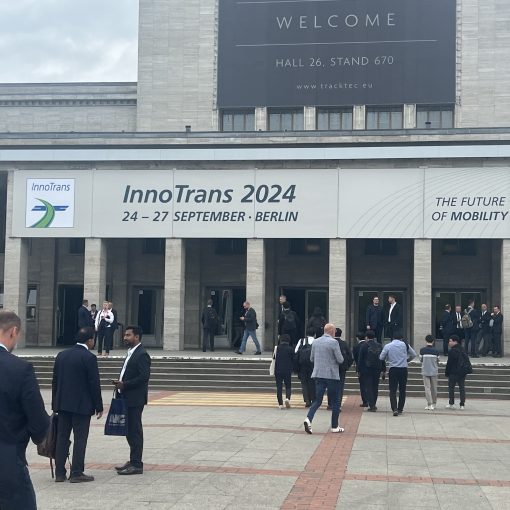By Patty Long The Passenger Rail Advisory Committee (PRAC), formed in the fall of 2024 under the Surface Transportation Board (STB), is an exciting development for the future of passenger rail in the United States. The committee, comprised of 21 individuals representing the rail industry across the country, is filled with enthusiasm and a shared […]
Rail Priorities for a New Administration: Q&A With Jack Isselmann, RSI GPAC Chair
By RSI Staff As the new presidential administration and Congress begin their terms, RSI is hard at work advocating for key legislative priorities that will shape the future of the rail industry. High on the agenda is the reauthorization of surface transportation funding, crucial for maintaining and improving the nation’s transportation infrastructure, and restoring critical […]
Quality, Technology, and Safety: Rail Priorities in 2025
By RSI Staff As the calendar turns to a new year, the rail industry remains laser focused on improving safety and reliability, with innovation and quality at the center. Jason Riggs, vice president of quality and technical services at Marmon Rail, believes the opportunities to enhance rail safety through new technologies are vast, paired with […]
The Evolution of U.S. Passenger Rail: Why Progress Matters
Passenger rail in the United States has entered an important phase of development. Over the past few years, significant groundwork has been laid, driven by new federal initiatives and promising ridership numbers. But this momentum can’t be taken for granted. Continued investment and development are key to realizing the full potential of passenger rail in […]
The Future of High-Speed Rail in America—and How Freight Can Benefit
By RSI Staff As demand for high-speed rail (HSR) continues to grow, the U.S. rail industry stands at the precipice of a transformative era. While many are familiar with HSR’s potential to revolutionize travel, fewer may appreciate the far-reaching benefits it can bring to the freight rail industry and broader rail ecosystem. According to Andy […]

Greetings From Berlin: An Optimistic Outlook on Rail at InnoTrans 2024
By RSI President Patty Long I recently had the privilege of attending InnoTrans in Berlin, the world’s largest trade fair for transport technology, for a second time. As a leading voice of the North American rail supply industry with a growing presence in the passenger space, RSI’s participation at this global event was more important […]
Assessing the Health of U.S. Passenger Rail Supply: 3 Takeaways
By RSI Staff In 1982, the Buy America Act was passed as a provision of the Surface Transportation Assistance Act, requiring mass-transit projects—be it rail, highway, or rapid transit—to purchase certain materials for infrastructure in the U.S. But domestic preference assumes a healthy domestic supplier base. So what does the health of rail supply in […]
Overheard at Innovation in Rail
By RSI Staff This summer, RSI hosted Innovation in Rail, a one-day event on Capitol Hill focused on rail technology, the regulatory environment, and the economic contributions made by the rail supply industry. With so many great minds in one room, we had to ask: What excites you about the future of our industry? What […]
Bridging the Telematics Technology Gap: A Conversation With 2 RailPulse Members
By RSI Staff As technology continues to evolve at the speed of light and make access to data increasingly available, how does rail keep pace, especially when it comes to monitoring logistics? Today’s solutions are at times considered antiquated and disparate across the industry. RailPulse seeks to answer this question and modernize rail shipping for […]
‘Speaking to Every Corner of the Industry’: A Conversation With RSI Board Member Jeremy Erickson
https://youtu.be/X_iUuoM9awU?si=1GWGDCuPV-7EPncX In this video interview, we sit down with Jeremy Erickson, COO of Messiah Locomotive Service and RSI Board Member, to get some insight into his world. Jeremy shares how his company makes the most of tradeshow events, using them to build connections that drive their business forward. He also talks about the benefits of […]
